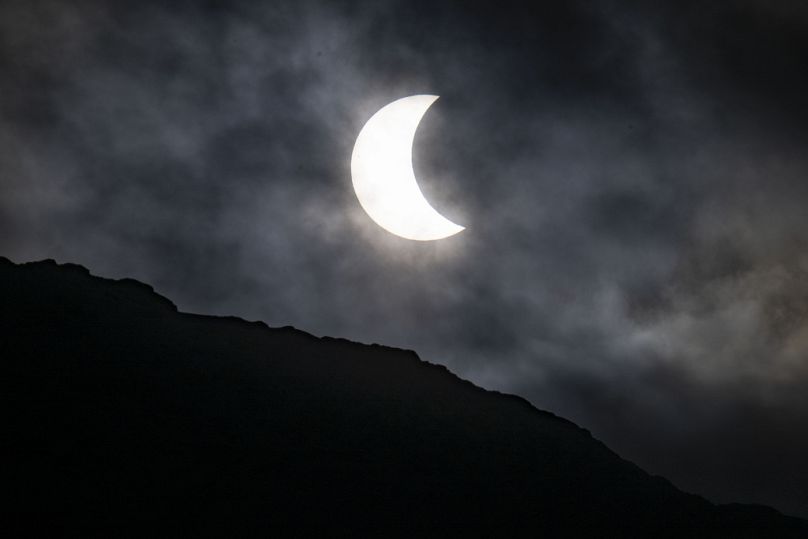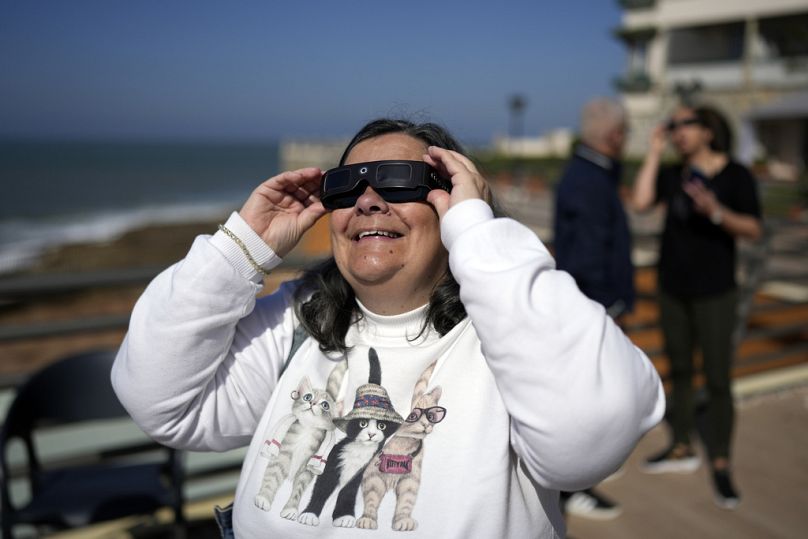The moon seemed to take bites out of the sun this weekend during a partial solar eclipse in the Northern Hemisphere.
The spectacle, only visible for a few minutes unfolded on late morning Saturday, with the eclipse visible across Europe, western Africa, eastern North America, and northern Asia.
In London, spectators watched from the Royal Observatory in Greenwich. Catherine Muller, an astronomer at the Observatory, called the event "really special."
She said such occurrences are rare, with the next one visible in the UK not expected until September 2026.

NASA estimated that the area of the sun's disk covered were Lisbon 27%, Dublin 31%, Madrid 21%, Milan 10%, Berlin 15%, Reykjavik 68%, London 31%, and Paris 24%
A partial solar eclipse occurs when the moon moves between the sun and Earth, casting a shadow that only partially obscures the sun, creating a crescent-like appearance.
Unlike a total solar eclipse, there is no period of total darkness, so experts advise wearing proper eye protection throughout the event.

According to NASA, solar and lunar eclipses happen between four and seven times a year.
Because of the moon's tilted orbit around Earth, these events often come in pairs. Just last month, a total lunar eclipse turned the moon red.
Another total lunar eclipse and a partial solar eclipse are set to occur in September, with the best solar eclipse views expected in Antarctica and New Zealand.







